Organizers
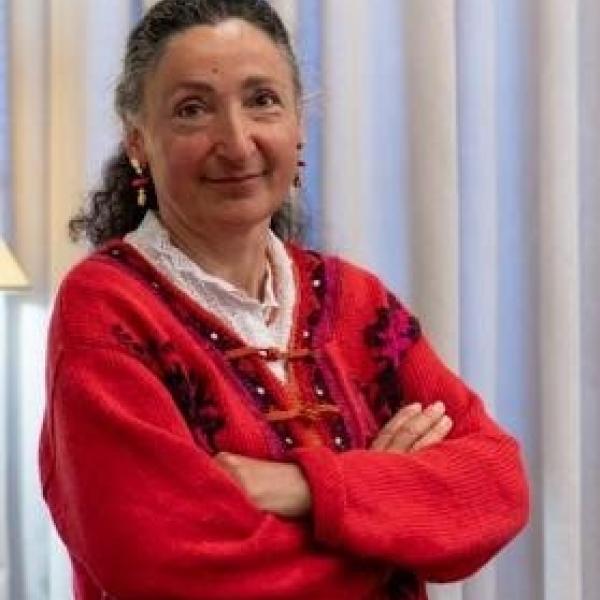
Bio
Isabelle Guyon recently joined Google Brain as a research scientist. She is also professor of artificial intelligence at Université Paris-Saclay (Orsay). Her areas of expertise include computer vision, bioinformatics, and power systems. She is best known for being a co-inventor of Support Vector Machines. Her recent interests are in automated machine learning, meta-learning, and data-centric AI. She has been a strong promoter of challenges and benchmarks, and is president of ChaLearn, a non-profit dedicated to organizing machine learning challenges. She is community lead of Codalab competitions, a challenge platform used both in academia and industry. She co-organized the “Challenges in Machine Learning Workshop” @ NeurIPS between 2014 and 2019, launched the "NeurIPS challenge track" in 2017 while she was general chair, and pushed the creation of the "NeurIPS datasets and benchmark track" in 2021, as a NeurIPS board member.
Bio
Joelle Pineau is an Associate Professor and William Dawson Scholar at McGill University where she co-directs the Reasoning and Learning Lab. She also leads the Facebook AI Research lab in Montreal, Canada. She holds a BASc in Engineering from the University of Waterloo, and an MSc and PhD in Robotics from Carnegie Mellon University. Dr. Pineau's research focuses on developing new models and algorithms for planning and learning in complex partially-observable domains. She also works on applying these algorithms to complex problems in robotics, health care, games and conversational agents. She serves on the editorial board of the Journal of Artificial Intelligence Research and the Journal of Machine Learning Research and is currently President of the International Machine Learning Society. She is a recipient of NSERC's E.W.R. Steacie Memorial Fellowship (2018), a Fellow of the Association for the Advancement of Artificial Intelligence (AAAI), a Senior Fellow of the Canadian Institute for Advanced Research (CIFAR) and in 2016 was named a member of the College of New Scholars, Artists and Scientists by the Royal Society of Canada.
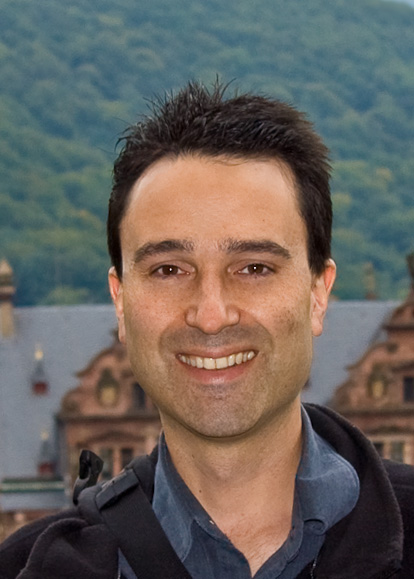
Bio
Jeffrey A. Bilmes is a professor at the Department of Electrical and Computer Engineering at the University of Washington, Seattle Washington. He is also an adjunct professor in Computer Science & Engineering and the department of Linguistics. Prof. Bilmes is the founder of the MELODI (MachinE Learning for Optimization and Data Interpretation) lab here in the department. Bilmes received his Ph.D. from the Computer Science Division of the department of Electrical Engineering and Computer Science, University of California in Berkeley and a masters degree from MIT. He was also a researcher at the International Computer Science Institute, and a member of the Realization group there.
Prof. Bilmes is a 2001 NSF Career award winner, a 2002 CRA Digital Government Fellow, a 2008 NAE Gilbreth Lectureship award recipient, and a 2012/2013 ISCA Distinguished Lecturer. Prof. Bilmes was, along with Andrew Ng, one of the two UAI (Conference on Uncertainty in Artificial Intelligence) program chairs (2009) and then the general chair (2010). He was also a workshop chair (2011) and the tutorials chair (2014) at NIPS/NeurIPS (Neural Information Processing Systems), and is a regular senior technical chair at NeurIPS/NIPS since then. He was an action editor for JMLR (Journal of Machine Learning …
Bio
Suvrit Sra is a faculty member within the EECS department at MIT, where he is also a core faculty member of IDSS, LIDS, MIT-ML Group, as well as the statistics and data science center. His research spans topics in optimization, matrix theory, differential geometry, and probability theory, which he connects with machine learning --- a key focus of his research is on the theme "Optimization for Machine Learning” (http://opt-ml.org)
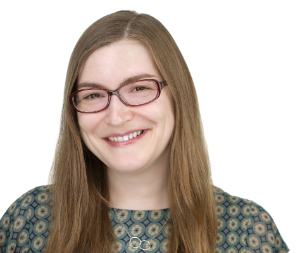
Bio
Jenn Wortman Vaughan is a Senior Principal Research Manager at Microsoft Research, New York City, where she studies responsible AI with a focus on transparency, fairness, evaluation, and human-AI interaction. Originally trained in machine learning and algorithmic economics, she now often draws on methods from human-computer interaction to investigate how people engage with AI systems. Before joining MSR in 2012, Jenn completed her Ph.D. at the University of Pennsylvania and was an Assistant Professor of Computer Science at UCLA and a Computing Innovation Fellow at Harvard. Her work has been recognized with the NSF CAREER Award, the Presidential Early Career Award for Scientists and Engineers (PECASE), and Penn’s Rubinoff dissertation award. Beyond her research, Jenn has helped shape the field through her mentorship of junior researchers, her leadership in roles including Program Co-Chair of NeurIPS and FAccT, and as co-founder of the Workshop on Women in Machine Learning (WiML), held annually since 2006.
Bio
Claire Monteleoni is an associate professor of Computer Science at University of Colorado Boulder. Previously, she was an associate professor at George Washington University, and research faculty at the Center for Computational Learning Systems, at Columbia University. She did a postdoc in Computer Science and Engineering at the University of California, San Diego, and completed her PhD and Masters in Computer Science, at MIT. She holds a Bachelors in Earth and Planetary Sciences from Harvard. Her research focuses on machine learning algorithms and theory for problems including learning from data streams, learning from raw (unlabeled) data, learning from private data, and climate informatics: accelerating discovery in climate science with machine learning. Her work on climate informatics received the Best Application Paper Award at NASA CIDU 2010. In 2011, she co-founded the International Workshop on Climate Informatics, which is now in its fourth year, attracting climate scientists and data scientists from over 14 countries and 26 states.
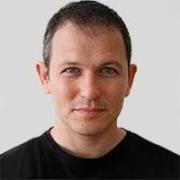
Bio
Amir Globerson received a BSc in computer science and physics from the Hebrew University, and a PhD in computational neuroscience from the Hebrew University. After his PhD, he was a postdoctoral fellow at the University of Toronto and a Rothschild postdoctoral fellow at MIT. He joined the Hebrew University school of computer science in 2008, and moved to the Tel Aviv University School of Computer Science in 2016. He is also a research scientist at Google and is currently on sabbatical at Google NYC. He served as an Associate Editor in Chief for the IEEE Transactions on Pattern Analysis And Machine Intelligence. His work has received several paper awards (at NeurIPS,UAI, and ICML). In 2018 he served as program co-chair for the UAI conference, and in 2019 he was the general co-chair for UAI in Tel Aviv. In 2019 he received the ERC consolidator grant. He is serving as program co-chair at NeurIPS 2023, and will serve as NeurIPS 2024 general chair.
Bio
Rob Fergus is an Associate Professor of Computer Science at the Courant Institute of Mathematical Sciences, New York University. He received a Masters in Electrical Engineering with Prof. Pietro Perona at Caltech, before completing a PhD with Prof. Andrew Zisserman at the University of Oxford in 2005. Before coming to NYU, he spent two years as a post-doc in the Computer Science and Artificial Intelligence Lab (CSAIL) at MIT, working with Prof. William Freeman. He has received several awards including a CVPR best paper prize, a Sloan Fellowship & NSF Career award and the IEEE Longuet-Higgins prize.
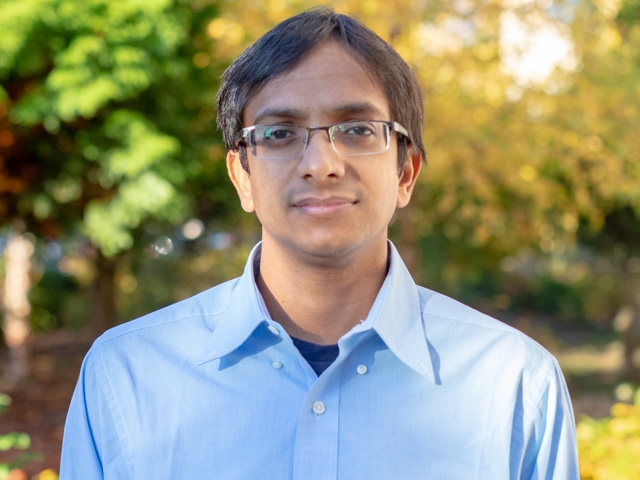
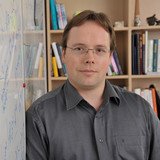
Bio
Christoph Lampert received the PhD degree in mathematics from the University of Bonn in 2003. In 2010 he joined the Institute of Science and Technology Austria (ISTA) first as an Assistant Professor and since 2015 as a Professor. There, he leads the research group for Machine Learning and Computer Vision, and since 2019 he is also the head of ISTA's ELLIS unit.
Bio
François Fleuret got a PhD in Mathematics from INRIA and the University of Paris VI in 2000, and an Habilitation degree in Mathematics from the University of Paris XIII in 2006.
He is Full Professor in the department of Computer Science at the University of Geneva, and Adjunct Professor in the School of Engineering of the École Polytechnique Fédérale de Lausanne. He has published more than 80 papers in peer-reviewed international conferences and journals.
He is Associate Editor of the IEEE Transactions on Pattern Analysis and Machine Intelligence, serves as Area Chair for NeurIPS, AAAI, and ICCV, and in the program committee of many top-tier international conferences in machine learning and computer vision. He was or is expert for multiple funding agencies.
He is the inventor of several patents in the field of machine learning, and co-founder of Neural Concept SA, a company specializing in the development and commercialization of deep learning solutions for engineering design.
His main research interest is machine learning, with a particular focus on computational aspects and sample efficiency.
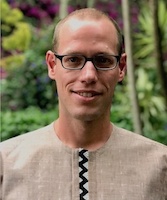
Bio
Professor Marc Deisenroth is the DeepMind Chair in Artificial Intelligence at University College London and the Deputy Director of UCL's Centre for Artificial Intelligence. He also holds a visiting faculty position at the University of Johannesburg and Imperial College London. Marc's research interests center around data-efficient machine learning, probabilistic modeling and autonomous decision making. Marc was Program Chair of EWRL 2012, Workshops Chair of RSS 2013, EXPO-Co-Chair of ICML 2020, and Tutorials Co-Chair of NeurIPS 2021. In 2019, Marc co-organized the Machine Learning Summer School in London. He received Paper Awards at ICRA 2014, ICCAS 2016, and ICML 2020. He is co-author of the book Mathematics for Machine Learning published by Cambridge University Press (2020).
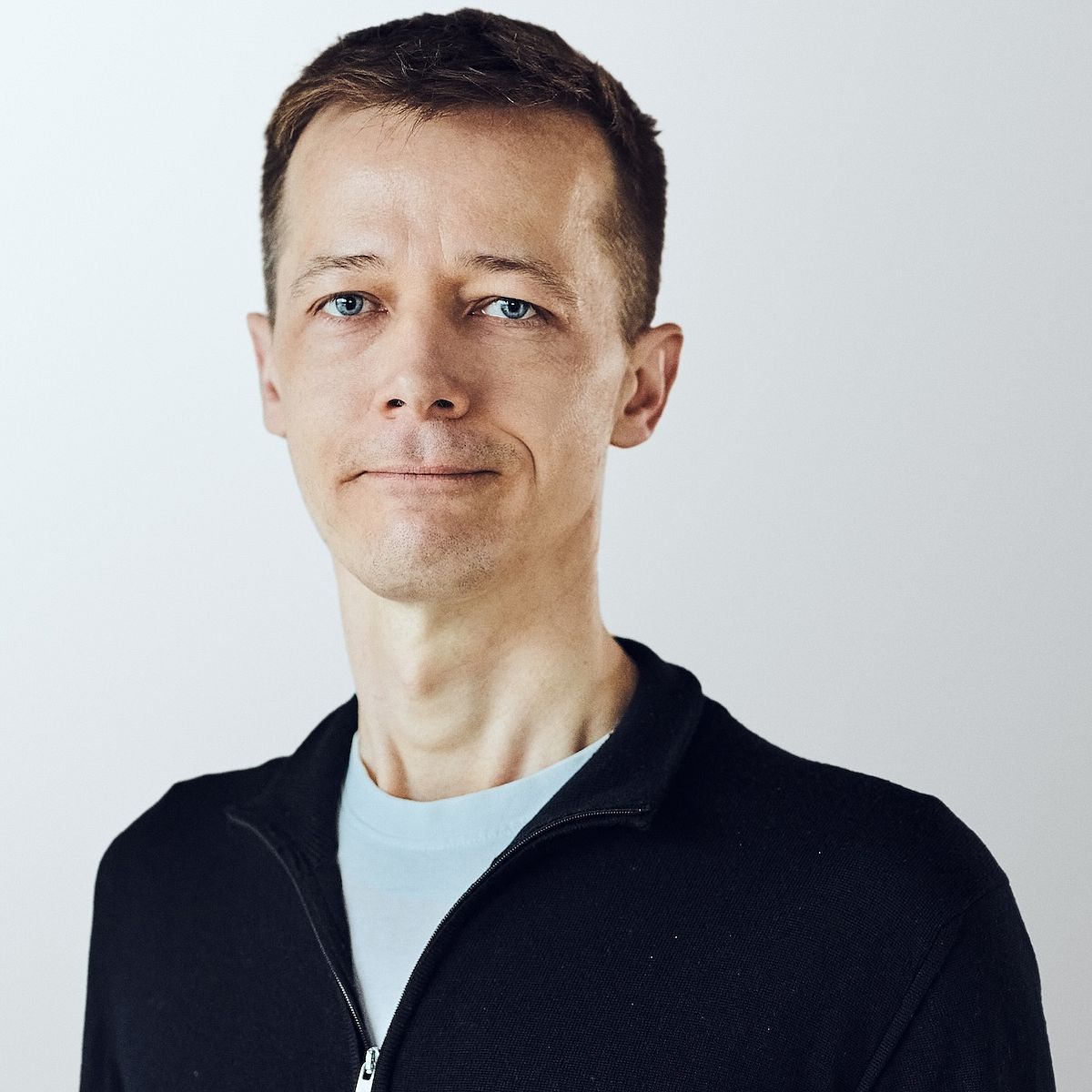
Bio
Philipp Hennig holds the Chair for the Methods of Machine Learning. He studied Physics in Heidelberg, Germany and at Imperial College, London, before moving to the University of Cambridge, UK, where he attained a PhD in the group of Sir David JC MacKay with research on machine learning. Since this time, he is interested in connections between computation and inference. With international collaborators, he helped establish the field of probabilistic numerics. In 2022, Cambridge University Press published his textbook on the subject, Probabilistic Numerics — Computation as Machine Learning.
Hennig's research was supported, among others, by the Emmy Noether Programme of the German Research Union (DFG), an independent Research Group of the Max Planck Society, and Starting and Consolidator grants of the European Commission.
Hennig is a Fellow and Co-Director of the ELLIS Program on Theory, Algorithms and Computations of Modern Learning Systems of the European Laboratory for Learning and Intelligent Systems, ELLIS. He is a member of the Steering Committees of the Tübingen AI Center, and the Cluster of Excellence for Machine Learning in Science. Since October 2022, he serves as the Dean of Studies for the Department of Computer Science in Tübingen.
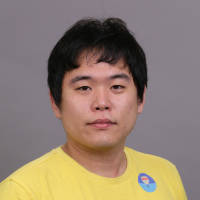
Bio
Kyunghyun Cho - Glen de Vries Professor of Health Statistics, NYU; Executive Director of Frontier Research, Prescient Design, Genentech Cho's work spans machine learning and natural language processing. He co-developed the Gated Recurrent Unit (GRU) architecture and has contributed to neural machine translation and sequence-to-sequence learning. He is a CIFAR Fellow of Learning in Machines & Brains and received the 2021 Samsung Ho-Am Prize in Engineering. He served as program chair for ICLR 2020, NeurIPS 2022, and ICML 2022.
Bio
Frank Hutter is a Full Professor for Machine Learning at the Computer Science Department of the University of Freiburg (Germany), where he previously was an assistant professor 2013-2017. Before that, he was at the University of British Columbia (UBC) for eight years, for his PhD and postdoc. Frank's main research interests lie in machine learning, artificial intelligence and automated algorithm design. For his 2009 PhD thesis on algorithm configuration, he received the CAIAC doctoral dissertation award for the best thesis in AI in Canada that year, and with his coauthors, he received several best paper awards and prizes in international competitions on machine learning, SAT solving, and AI planning. Since 2016 he holds an ERC Starting Grant for a project on automating deep learning based on Bayesian optimization, Bayesian neural networks, and deep reinforcement learning.
Bio
Sergio Escalera obtained the P.h.D. degree on Multi-class visual categorization systems at Computer Vision Center, UAB. He obtained the 2008 best Thesis award on Computer Science at Universitat Autònoma de Barcelona. He leads the Human Pose Recovery and Behavior Analysis Group at UB, CVC, and the Barcelona Graduate School of Mathematics. He is an associate professor at the Department of Mathematics and Informatics, Universitat de Barcelona. He is an adjunct professor at Universitat Oberta de Catalunya, Aalborg University, and Dalhousie University. He has been visiting professor at TU Delft and Aalborg Universities. He is a member of the Visual and Computational Learning consolidated research group of Catalonia. He is also a member of the Computer Vision Center at Campus UAB. He is Editor-in-Chief of American Journal of Intelligent Systems and editorial board member of more than 5 international journals. He is advisor, director, and vice-president of ChaLearn Challenges in Machine Learning, leading ChaLearn Looking at People events. He is co-founder of PhysicalTech and Care Respite companies. He is also member of the AERFAI Spanish Association on Pattern Recognition, ACIA Catalan Association of Artificial Intelligence, and he is vice-chair of IAPR TC-12: Multimedia and visual information systems. He has different patents …
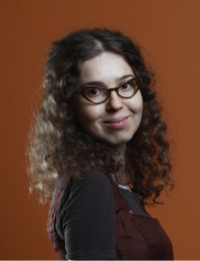
Bio
Cheng Soon Ong is a principal research scientist at the Machine Learning Research Group, Data61, CSIRO, and is the director of the machine learning and artificial intelligence future science platform at CSIRO. He is also an adjunct associate professor at the Australian National University. He is interested in enabling scientific discovery by extending statistical machine learning methods.
Bio
Lise Getoor is a professor in the Computer Science Department at the University of California, Santa Cruz. Her research areas include machine learning, data integration and reasoning under uncertainty, with an emphasis on graph and network data. She has over 250 publications and extensive experience with machine learning and probabilistic modeling methods for graph and network data. She is a Fellow of the Association for Artificial Intelligence, an elected board member of the International Machine Learning Society, serves on the board of the Computing Research Association (CRA), and was co-chair for ICML 2011. She is a recipient of an NSF Career Award and eleven best paper and best student paper awards. She received her PhD from Stanford University in 2001, her MS from UC Berkeley, and her BS from UC Santa Barbara, and was a professor in the Computer Science Department at the University of Maryland, College Park from 2001-2013.
Bio
Stefanie Jegelka is an X-Consortium Career Development Assistant Professor in the Department of EECS at MIT. She is a member of the Computer Science and AI Lab (CSAIL), the Center for Statistics and an affiliate of the Institute for Data, Systems and Society and the Operations Research Center. Before joining MIT, she was a postdoctoral researcher at UC Berkeley, and obtained her PhD from ETH Zurich and the Max Planck Institute for Intelligent Systems. Stefanie has received a Sloan Research Fellowship, an NSF CAREER Award, a DARPA Young Faculty Award, the German Pattern Recognition Award and a Best Paper Award at the International Conference for Machine Learning (ICML). Her research interests span the theory and practice of algorithmic machine learning.
Bio
Simon Lacoste-Julien is an associate professor at Mila and DIRO from Université de Montréal, and Canada CIFAR AI Chair holder. He also heads part time the SAIT AI Lab Montreal from Samsung. His research interests are machine learning and applied math, with applications in related fields like computer vision and natural language processing. He obtained a B.Sc. in math., physics and computer science from McGill, a PhD in computer science from UC Berkeley and a post-doc from the University of Cambridge. He spent a few years as a research faculty at INRIA and École normale supérieure in Paris before coming back to his roots in Montreal in 2016 to answer the call from Yoshua Bengio in growing the Montreal AI ecosystem.